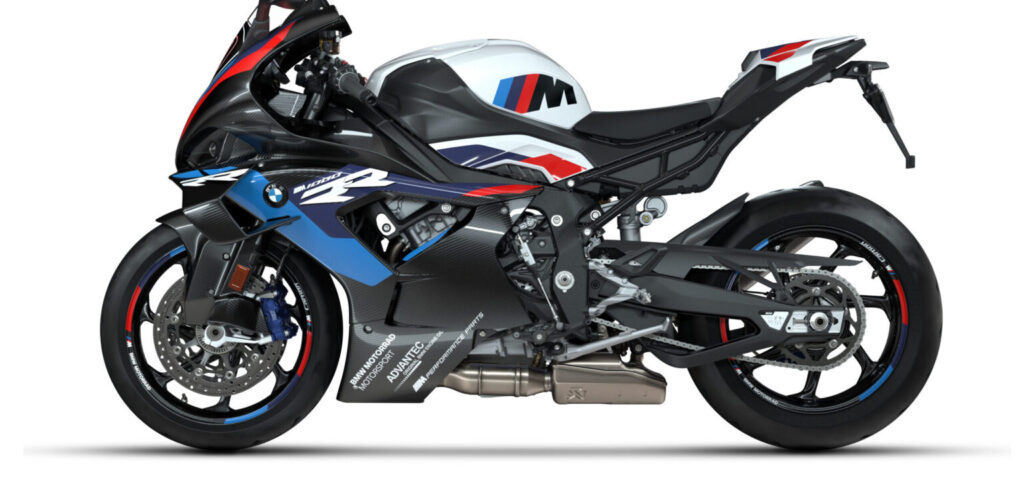A decision has been made by the Superbike Commission of the FIM World Superbike Championship (WorldSBK) to use fuels containing at least 40% non-fossil components for the upcoming 2024 season. BMW Motorrad Motorsport is working on the development of these alternative fuels as a partner of the company NORDOEL, as part of the federally funded joint project DeCarTrans.
Coordinated by FEV, the DeCarTrans (Demonstrating a Circular Carbon Economy in Transport Along the Value Chain) project started in January 2023 and will investigate the continuous production of synthetic gasoline in a demonstration plant on an industrial scale. The plant will have a total production volume of up to 380,000 liters.
Funded by the Federal Ministry of Digital and Transport, the joint project’s main aims are to improve process efficiency – through heat re-integration for example – and to enhance product quality to minimize the emission of pollutants during combustion. The group will also evaluate sales and market launch scenarios.
The partially alternative fuels that will be used within the WorldSBK from 2024 are bio-based fuels or synthetic fuels.
“NORDOEL provides us with alternative fuels, which we test on our engine test bench under different conditions,” explained Thomas von Westberg, project overseer on behalf of BMW Motorrad Motorsport. “The focus is currently on our WorldSBK engine, in which we will use these alternative fuels as early as 2024. We carry out analyses, fuel experts evaluate the fuels from the chemical side, and of course, the focus is on the test bench work with operation in the fired engine with the corresponding analyses regarding combustion process, mixture formation, performance and consumption.
“In addition, there are other topics that come with alternative fuels. We also carry out further basic tests with other engines, for example our EWC engine. We play the results back to NORDOEL, and the colleagues there can then make appropriate adjustments. There is a transparent, close exchange here. The aim of the development is a fuel that complies with the regulations defined by the FIM and at the same time achieves the best possible performance and consumption values in combination with our WorldSBK engine.
There are, however, challenges to overcome as the alternative fuels used for race bikes must meet many more requirements than those produced for production motorcycles.
“One issue is combustion and knock sensitivity, because our engines are significantly higher compressed than production motorcycles,” added von Westberg. “On the other hand, a fuel must of course always offer a performance advantage. Then it is important to ensure constant performance over the entire runtime of the engine.”
BMW Motorrad Motorsport also shares and discusses the results of its alternative fuel analyses with its series colleagues.
“Our technical claim is that the partially alternative racing fuel that we use in the WorldSBK can also be used in a production bike. This is also the idea within the DeCarTrans project and the goal of NORDOEL: to develop a racing fuel that is also suitable for production vehicles,” said von Westberg.
The initial tests of the new alternative fuels are scheduled to take place on a race circuit during 2023, to prepare for the use of semi-alternative fuels before the 2024 WorldSBK season.



